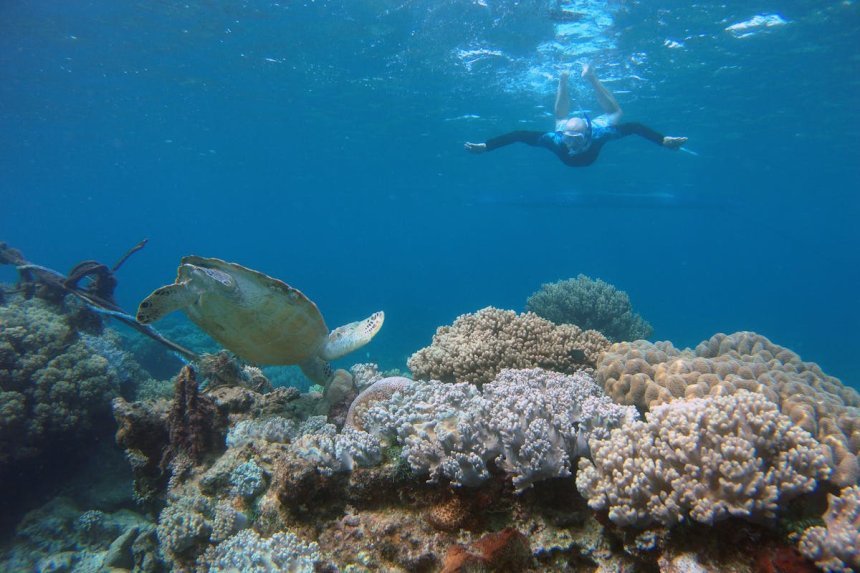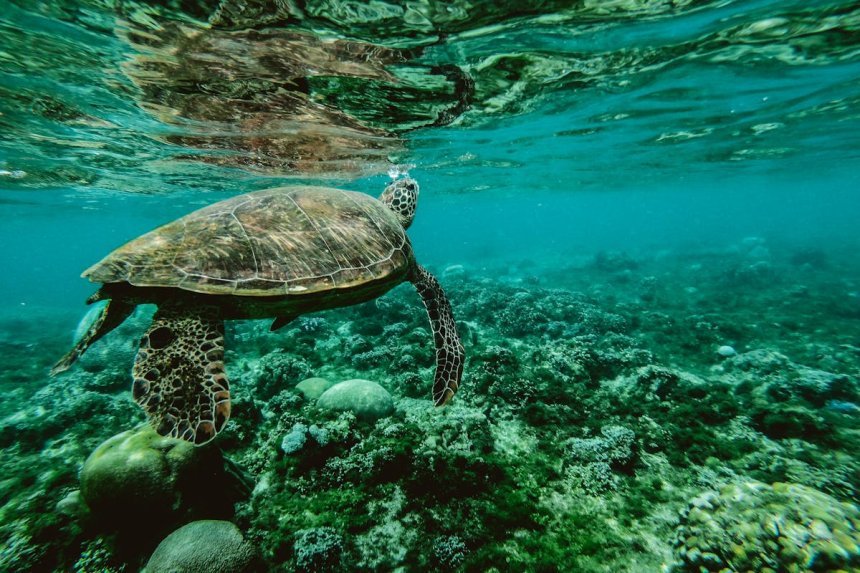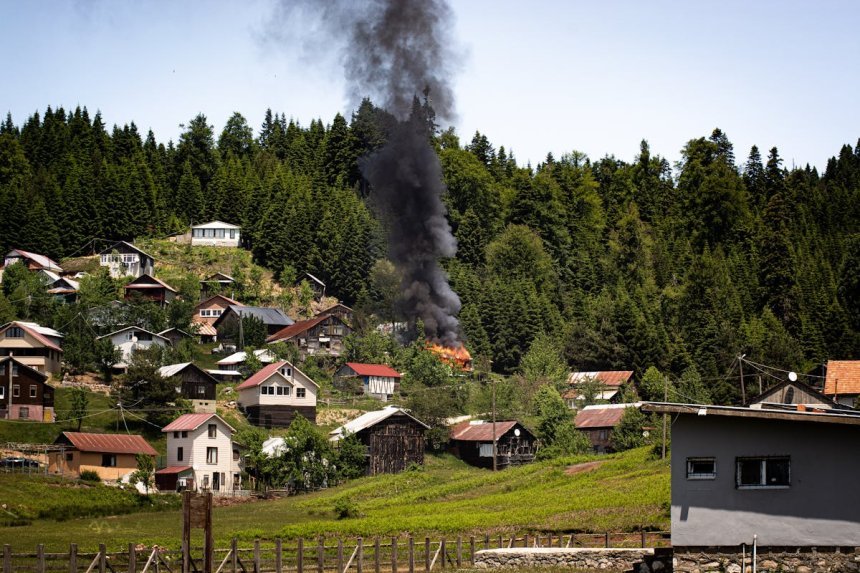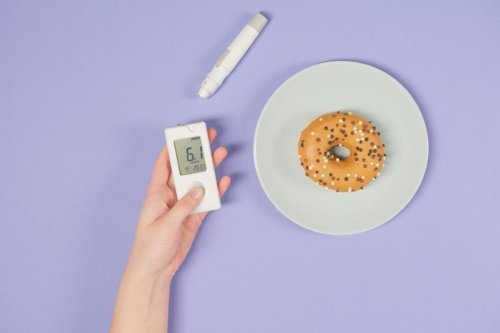Why Climate Change Is Quietly Killing Our Oceans—And Nobody’s Talking About It
The hidden effects of climate change on marine life are revealed in this article. To reveal what's actually happening to coral, plankton, whales, and the food web that subtly keeps our entire world together, we're going beyond the typical gloomy headlines. It's worse than you thought, spoiler alert. And it's taking place in silence as we browse TikTok.

Here's something that'll mess with your head: over 70% of Earth is ocean, yet most climate conversations are stuck on land. Rising temperatures? Melting ice? Sure. But what’s happening under the surface is way darker—and way more dangerous.
The hidden effects of climate change on marine life are revealed in this article. To reveal what's actually happening to coral, plankton, whales, and the food web that subtly keeps our entire world together, we're going beyond the typical gloomy headlines. It's worse than you thought, spoiler alert. And it's taking place in silence as we browse TikTok.
The Ocean Is Heating Up—And It’s Not Just a Little Warm Bath
Hotter Waters = Fish Freakouts
Let’s start with temperature. Oceans are soaking up over 90% of the excess heat caused by greenhouse gases. Think about that for a second. Not the air, not the land—the ocean is carrying most of the climate change burden.
And guess what? Marine life wasn’t built for that.
Fish are migrating to cooler waters, abandoning coral reefs they’ve lived in for centuries. Tropical species are popping up in the Arctic. Others are just… vanishing. Because if the water gets too warm? Their metabolism goes crazy. They either starve, suffocate, or fail to reproduce.
The Coral Crisis—Why Reefs Are Dying in Front of Our Eyes
Coral Bleaching Isn’t Just a Buzzword

Coral reefs are like the rainforests of the sea—colorful, diverse, vital. But they’re crazy sensitive.
Corals become stressed when water becomes too warm, even by just 1°C. They turn ghost-white when they expel the algae that feeds and lives inside them. We refer to this as bleaching. Corals suffer without algae, so it's not just about appearances.
If temperatures don’t drop fast, they die. And when coral dies? Entire marine ecosystems collapse.
We’ve already lost 50% of the world’s reefs. Half. Gone.
And here’s the twist: they’re not coming back. Not in your lifetime. Not in your grandkids’ lifetimes either.
Acid Trip—How Carbon Dioxide Is Turning the Ocean Sour
Every time you breathe out or drive a car, some of that CO₂ ends up in the sea. In fact, oceans absorb about a third of all human carbon emissions. That might sound helpful—like nature’s carbon sponge.
But here’s the kicker: CO₂ + seawater = carbonic acid. The ocean is slowly turning acidic.
Bad news for anything with a shell—like oysters, clams, and tiny plankton. Their calcium shells dissolve in acidic water, leaving them defenseless. Considering that the entire marine food chain is based on plankton? Yes, this has the potential to bring down the entire pyramid.
It's like melting the foundation of a skyscraper. Quiet. Unseen. Deadly.
Deoxygenation—When the Ocean Starts Running Out of Breath
No Oxygen = No Life
You are aware of your desire for air. So do fish. Through their gills, they extract oxygen from the water.
But as oceans warm, they hold less oxygen. And pollution from farms and cities creates “dead zones”—areas so low in oxygen that even shrimp can't survive.
These zones are spreading. Fast.
We're talking mass suffocation events where thousands of fish wash up dead. Some areas of the Gulf of Mexico have become graveyards. And it’s spreading to places like the Arabian Sea, Baltic Sea, and even parts of the Pacific.
It’s not a fish problem. It’s an ecosystem collapse problem.
Plastic + Heat + Acid = Chaos
The Triple Threat Nobody Planned For
Plastic pollution is already bad—microplastics are inside fish, salt, even human blood. But mix that with rising temperatures and acidification?
You get toxic soup.
Plastic leaches more chemicals in warmer water. Acid weakens marine organisms. And many plastics attract bacteria that thrive in low-oxygen zones.
The result? Mutated fish. Collapsing food webs. And seafood that might poison you slowly instead of feeding you.
We’re not just wrecking the oceans—we’re breaking their ability to fix themselves.
Whales, Sharks, and the Vanishing Giants
Top Predators Are Going Quietly Extinct
Whales keep the ocean alive. Literally. Their poop fertilizes plankton, which soaks up carbon. Sharks keep populations in check.
But climate change is throwing their lives out of rhythm.
Migration routes are broken. Food is scarce. Babies aren’t surviving. And warming waters mean more ship strikes, more disease, and more noise pollution.
Some species of whale have dropped by 70% in population. And if they vanish? So does one of Earth’s best climate regulators.
Fisheries Are Collapsing—and So Are Communities
It’s Not Just an Environmental Crisis. It’s a Food Crisis.
But fish stocks are crashing. Warmer oceans mess with spawning seasons, coral collapse ruins nurseries, and acidification wipes out the tiny things fish eat.
In West Africa, Southeast Asia, and island nations? This isn’t about saving sea turtles—it’s about eating tonight.
And when fish disappear? So do jobs, economies, and sometimes whole cultures. The ocean crisis isn’t just ecological. It’s human.
So Why Aren’t We Panicking?
Because we can’t see it.
Oceans don’t scream. They don’t burn like forests. They just go quiet. Blue on the outside, broken on the inside.
It’s easy to ignore what we don’t understand. And let’s be honest—oceans are complex. Coral bleaching doesn’t go viral. Deoxygenation doesn’t trend.
Share
What's Your Reaction?
 Like
0
Like
0
 Dislike
0
Dislike
0
 Love
0
Love
0
 Funny
0
Funny
0
 Angry
0
Angry
0
 Sad
0
Sad
0
 Wow
0
Wow
0











